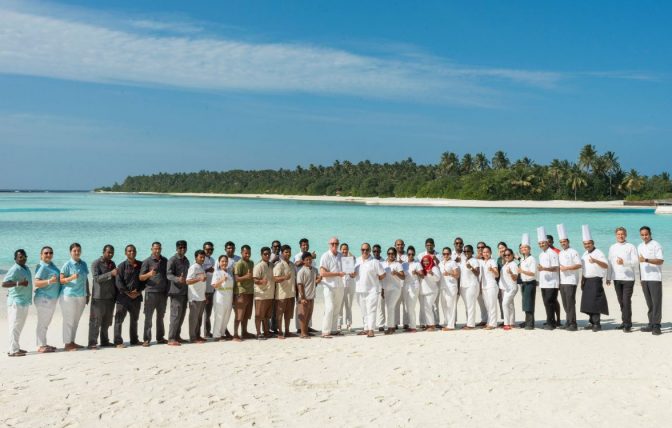


Niyama Private Islands Maldives has announced its upgrade from Gold to Platinum Green Growth 2050 certification, which is a recognition of its unrivalled commitment to sustainability in tourism.
Made up of over 1,200 low-lying islands, the Maldives is one of the most susceptible nations in the world to climate change. It is for this reason that Niyama Private Islands Maldives has, since its inception, dedicated itself to sustainable operations, leading the way in minimising its carbon footprint.
Green Growth 2050 sets the global benchmark for sustainability in travel and tourism. With over 400 indicators based on the UN Sustainable Development Goals, UNEP Green Economy Principles and UNWTO Ethics in Tourism, it quantifies sustainability in a hotel’s design, operations, environmental stewardship, and also social and community development.

This year, Niyama Private Islands Maldives achieved a 90% score and Platinum certification, joining fellow Minor Hotels properties Anantara Kihavah Maldives Villas and Anantara Veli Maldives Resort, the first in the Maldives to achieve this lofty recognition.
“Sustainability is not just a goal – it is a core part of our identity”, says Hafidh Al Busaidy, General Manager of the resort. “We are honoured to receive Green Growth 2050 Platinum certification, which reflects the hard work of our entire team, as well as our commitment to creating a positive impact on the environment and the local community. This award motivates us to continue pushing boundaries in sustainable luxury, hopefully inspiring others to do the same”.

Niyama Private Islands Maldives makes full use of the latest clean technology to conserve natural resources. Electricity consumption is lowered with inverter-type air conditioners and LED for maximum efficiency, all controlled by motion sensors to reduce wastage.
There is a reverse-osmosis plant on site to turn seawater into drinking water, greywater is filtered and recycled for use around the islands, laundry consumption is reduced thanks to a towel and linen reuse programme, and guest use is reduced using variable-frequency pumps to control water flow.
This year, the resort managed an impressive 75% reduction in single-use plastics, replacing plastic amenities and bottles with refillable, wood, paper and glass. Waste is sorted, reused, and recycled where possible, with a composter, compactor, and incinerator on-site to minimise landfills.

The environment, of course, plays a key role in the guest experience, and Niyama itself is pristine and green, with nurseries to conserve native plant species and a chef’s garden to cultivate organic produce for guests. Marine life is protected with minimal interaction save for the nurturing of corals. There are also regular beach and reef clean-ups, and natural protection of the islands against erosion is provided by creeper plants.
Niyama operates very much as part of the local community, with snacks, coconuts and seafood sourced from neighbouring islands, Maldivian cooking classes and local island tours offered to guests, and local artisans employed for boduberu drumming and sand art. Maldivian culture and a sustainable way of life are also taught to the next generation at the resort’s kids’ club, ensuring Niyama’s sustainability efforts bear fruit over the long term.
Finally, through its Dollar Impact programme, matching guest donations dollar for dollar, Niyama supports worthy causes such as local schools and hospitals, the Holistic Approach to Reef Protection, a reef monitoring and rehabilitation programme carried out in partnership with American NGO Coral Reef CPR and Minor Hotels, and the Olive Ridley project that monitors the health of the Maldives’ beautiful sea turtles.